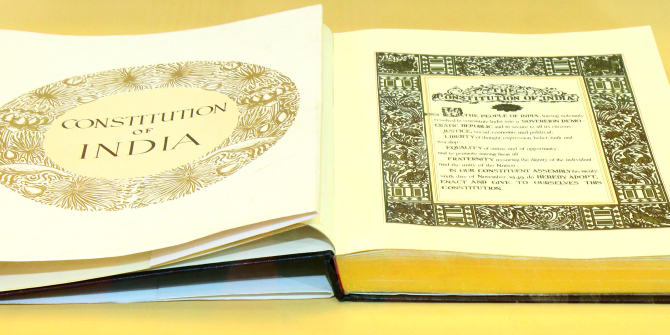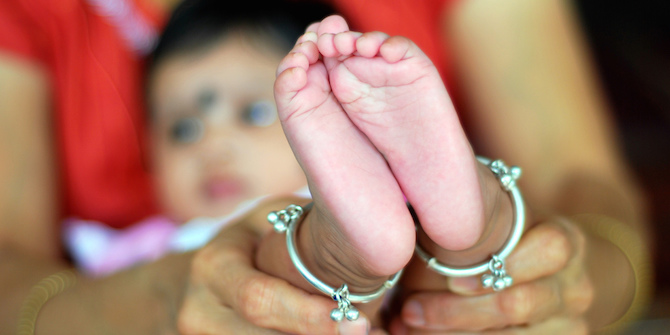 NGOs are increasingly adopting and supporting digital approaches to improve and extend their service delivery. In this article, Tasmiah Rahman draws on the Maya Apa App as an example of this shift and highlights how data can be used to tailor service delivery to key groups.
NGOs are increasingly adopting and supporting digital approaches to improve and extend their service delivery. In this article, Tasmiah Rahman draws on the Maya Apa App as an example of this shift and highlights how data can be used to tailor service delivery to key groups.
Moving the ‘women’ issue forward
Gender equality mainstreaming is at the forefront of the Sustainable Development Goals (SDGs) development agenda and the Bangladesh government has prioritised gender development in its 7th Five Year Plan (FY 2016-FY 2020). Besides encouraging access to basic services, the strategy aims to improve women’s capabilities and address social barriers that hinder women’s equal rights. Donors and the development projects are also working towards upholding this agenda. Access to microfinance and sources of income are now seen as key to improving the economic status of women. However, gender justice along with both physical and mental health issues have not yet been addressed. Women are still unaware of their rights and the legal processes that are in place to support women, nor do they have sufficient access to sexual and mental health services.
The social pressure of a women to act and dress a certain way to fulfil society’s expectations is bound to create extra burden on women. Even though quantitative indicators are satisfactory in terms of women’s development in Bangladesh; their everyday lives are much more restricted. There needs to be social services that support women in need so that they can overcome social barriers and live productive and fulfilling lives. The question is how can services be developed and improved for the wider community of women? One initiative that stands out is Maya Apa.
What is Maya Apa?
Maya Apa, a private initiative started in Bangladesh in 2011 as an internet-based support network exclusively for women. The founder Ivy Russel explained that the idea was to inform women about issues that are not discussed openly in society and to create a community that will support one another so that women can make informed choices. In her Ted Talks Ivy describes how in the UK she had access to multiple platforms which provided knowledge and information about her health during her pregnancy. However, she observed that this service was missing in Bangladesh.
Maya Apa was therefore established to provide a ‘personal digital wellbeing assistant’ where women can speak freely about their health, social barriers, abuse concerns etc. and seek support from professionals. The knowledge can then be redistributed to women who do not have access to online services. This has to be localised knowledge that will be easily available and understood by grassroots women and girls. Their knowledge and experience is then captured and made available online as well. It is now being used by NGO workers to support their local communities in receiving expert advice that is otherwise not available to people.
Over the years, Maya Apa has evolved fast and in 2014 it partnered with BRAC’s Gender Justice and Diversity Programme. The mobile app was launched in 2015 and BRAC has further invested in developing the app in 2016 through their Urban Development Programme to provide suggestions and support to 50,000 garment workers via mobile phones. The virtual platform keeps users anonymous and queries are routed to a reliable network of experts, such as doctors, lawyers and therapists through a real-time system that ensures credible and timely responses. The algorithm is developed in-house to ensure that queries are matched with relevant subject matter experts, who then respond. Maya Apa experts will also refer users to local external specialists and organisations for further care, support and follow up. Users can rate the quality of the advice they have received, as an audit measure for experts on the network.
The Maya Apa app can be downloaded from Google Play Store, and currently reaches about 10,000 users daily. Ivy Russel said that she took the idea from Uber as she recognised that the global taxi service has gained popularity by bringing the service people’s doorsteps using an app. Her aspirations for this app are the same.
Maya Apa: the future of NGO services?
What struck me most was the investment BRAC has made in developing this app. This is an example of larger NGOs slowly shifting towards joining private sector initiatives for providing online and mobile-based services to targeted audiences and reaching a wider community. The model is similar to the private sector mobile banking for cash transfers. For example, bKash is a mobile money service provider developed to increase financial inclusion that has reached over 14 million people in Bangladesh. In addition to providing money transfer services, bKash now offers saving schemes as well.
This points to potential areas of expansion for the Maya Apa App beyond providing information exclusively for women’s health, psychology and legal services. A wider range of services can also be catered for by listening to the end-users and explore the gaps in service delivery for other social provisions.
My own research on domestic workers has indicated that NGOs and Civil Society Organisations (CSOs) in Bangladesh may create platforms that will link the employers and employees through cross-class alliance. This would see the Maya Apa App offer a feature where employers that do provide social provisions to their employees can be the advocates of ‘change’ so that other employers feel motivated to provide certain services to their domestic workers. Both the employers and employees could potentially benefit from such an app, where availability of workers, prices for individual tasks, agreement procedures, and so forth can be discussed. A recommendation-based system will also keep both parties in check when it comes to getting the service next time. As women are coming outside their houses and family support structure are breaking down with the prevalence of nuclear families; exclusive services available to the working-class women can quickly gain popularity.
The data generated by this app should also be analysed to understand the current context of women and their needs. Digital platforms are reaching more people and eventually will have wider social impacts. Future project designs and implementations then should focus on the need of these end-users to create sustainable change in the society. Both governments and donor organisations while looking at policies will benefit from the dearth of information that will be readily available. Such private sector-NGO partnerships therefore have the potential over the next decade to shape access to social services successfully.
Cover Credit: Laura Elizabeth Pohl/Bread for the World CC BY-NC-ND 2.0
This article gives the views of the author, and not the position of the South Asia @ LSE blog, nor of the London School of Economics. Please read our comments policy before posting.
About the Author
 Tasmiah Rahman recently graduated from LSE with an MSc in Social Policy and Development. She is currently working as a Senior Manager, Monitoring Results Measurement and Communications in an international NGO in Bangladesh.
Tasmiah Rahman recently graduated from LSE with an MSc in Social Policy and Development. She is currently working as a Senior Manager, Monitoring Results Measurement and Communications in an international NGO in Bangladesh.
Tasmiah is a regular contributor to South Asia @ LSE. Read her previous posts here.







